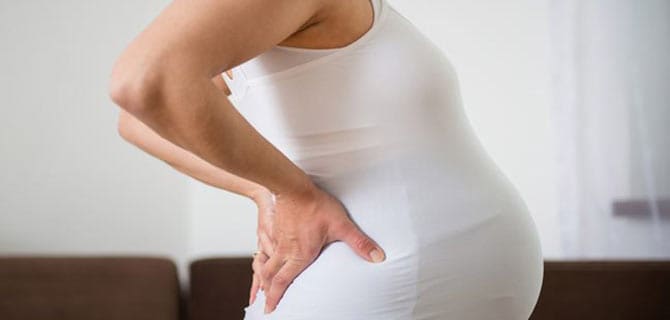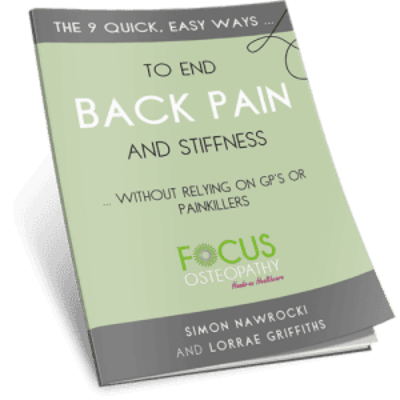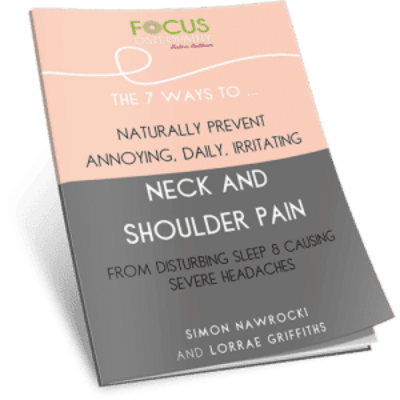Pregnancy is such a special experience. There is something to be said about carrying, growing and protecting your little bundle of joy. It is almost impossible to describe the feeling. The pregnancy experience is often described as all joy, love, glowing and happiness, however in reality it can actually turn out to be all nausea, discomfort and pain. Yes it would be wonderful if we all had a pregnancy full of bliss but unfortunately for a large percentage of women this just isn’t how it happens.
For a large portion of pregnant women, we experience varying degrees of back pain. This can range from a low grade ache and discomfort in bed, or on the couch, to discomfort whilst standing, after walking or being on our feet too long. In some instances it is not uncommon to experience severe debilitating pain in which you have to resort to using crouches or a wheel chair or being almost completely house bound.
Whatever the degree of pain you have suffered throughout your pregnancy it certainly puts a “downer” on the whole experience.
So why does it happen?
Firstly, we all know that a women’s body undergoes dramatic changes throughout a pregnancy whilst growing a baby. There are changes that you can see from the outside, changes you can feel on the inside and changes you have no idea that are happening. It is a combination of all these things that can lead to back pain.
Hormonal changes: Some hormonal changes you will feel – you may feel more emotional or have mood swings, your breasts will feel tender, you may feel more hungry, you may feel nauseous, you may need to go to the bathroom more regularly. What you won’t feel is the softening of the ligaments and changes in the soft tissues or muscles which are all attributable to hormones.
Physical changes: You may notice a growing belly, weight gain, larger breasts, swollen hands and feet, your luscious locks of hair. What you may not notice, as it happens so gradually, are the changes in your posture.
As the pregnancy progresses your once good posture starts to fade away to accommodate the growing baby. Your abdominal muscles stretch and are less efficient at contracting, this results in poor alignment and support of the lower back. Your pelvis tilts forward and your back arches. This posture alone means that your once stable lower back and pelvic joints do not function properly and rely more heavily on the surrounding muscles to provide the support and to maintain some sort of posture. For many women their bodies cope with this change and their muscles are able to adapt and provide sufficient support to the joints. However in a number of women their muscles are insufficient and lack the ability to provide the correct support. When this occurs there is significant strain on the joints and this can lead to pain.
Women with existing back or pelvic dysfunction are more likely to develop back pain during pregnancy. Many of the population are unaware they have a back or pelvic problem due to never having symptoms in this region, however the dramatic changes during pregnancy often highlight the problem.
It is common for women that have had a history of prior injury or dysfunction to the lower back or pelvic region will suffer from this type of pain. However injuries to other areas of the body may also contribute to back pain during pregnancy.
The following previous injuries may contribute to pregnancy related back pain;
- Back strain/injury
- Hip strain/injury
- Ankle or knee injury
- Surgeries to the hip, knee, ankle, back
Unfortunately many women who suffer from back pain during pregnancy become sedentary, thinking that stopping physical activity and resting will help their pain. Although this is the recommended action for some complaints, the vast majority of pregnancy related back pains require the opposite. It is essential to keep those muscles activated and get them working properly to help support the progressing postural changes throughout pregnancy.
The good news is that in most cases, pregnancy related back pain can be treated and managed so that you can enjoy your pregnancy. It is important however to seek the advice of a medical professional and one that is experienced in pregnancy related problems. This may be your obstetrician, osteopath, physiotherapist or chiropractor.
As an Osteopath and a mother, the best advice I can give is DO NOT WAIT to see how it goes. It is unlikely to go away as your body is changing constantly. The earlier you act and address the back pain the quicker you can manage it and prevent it getting worse, so that you can enjoy your pregnancy and remember it being a joyous time!





